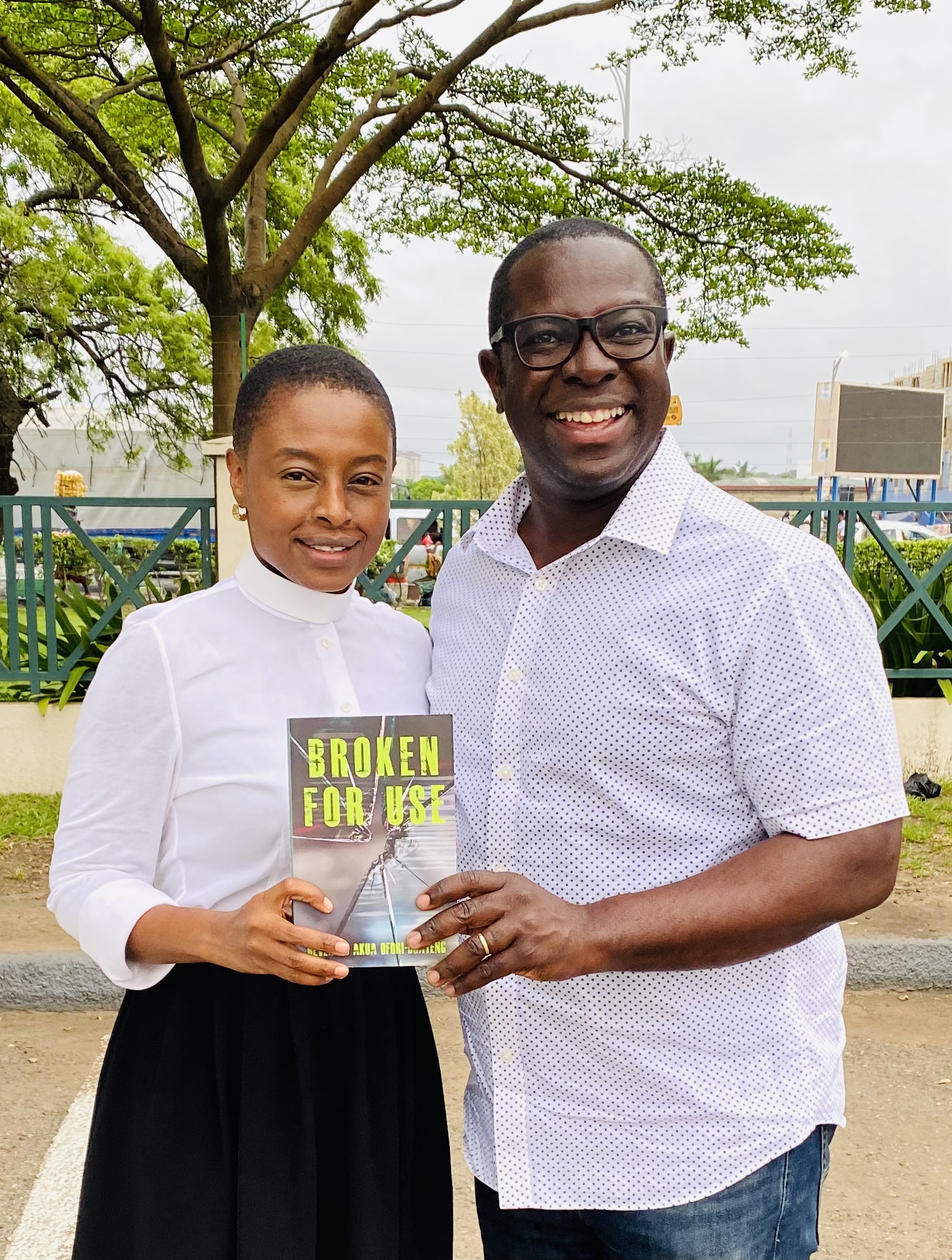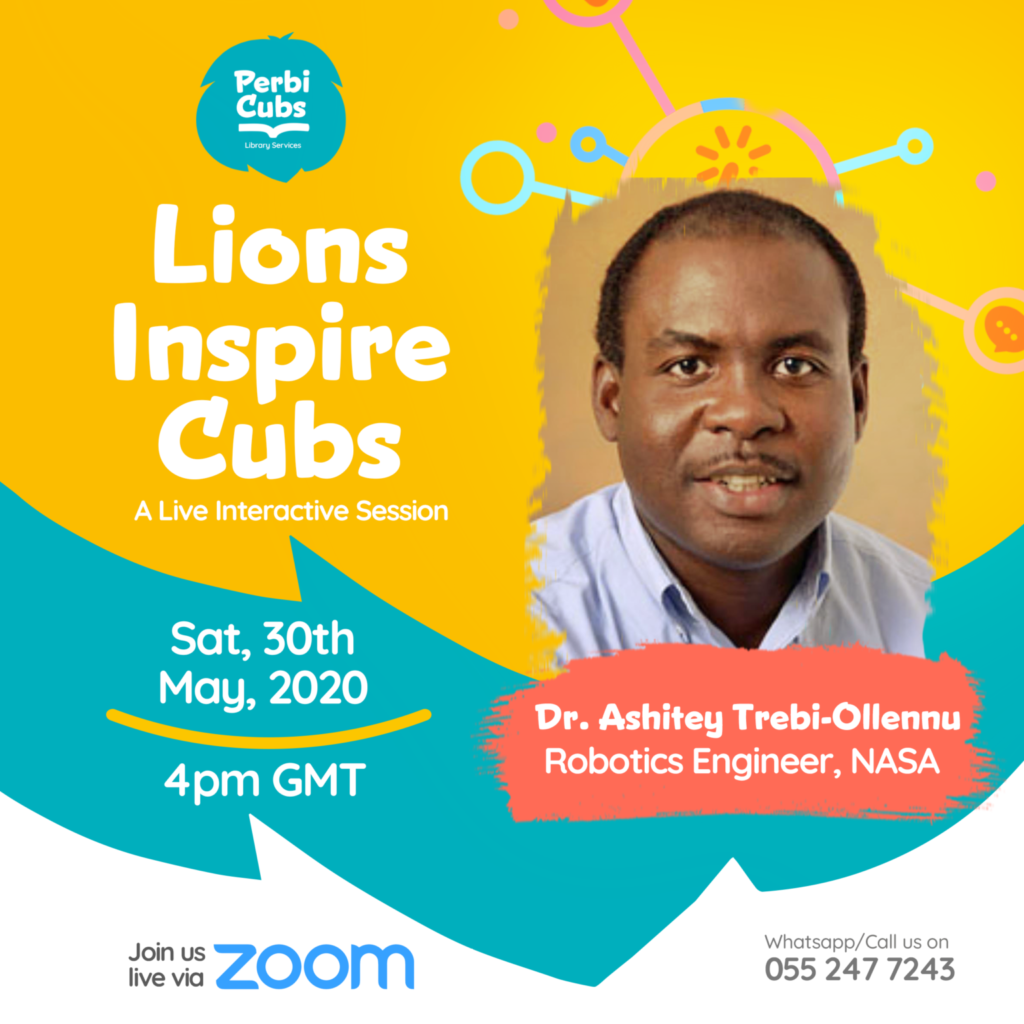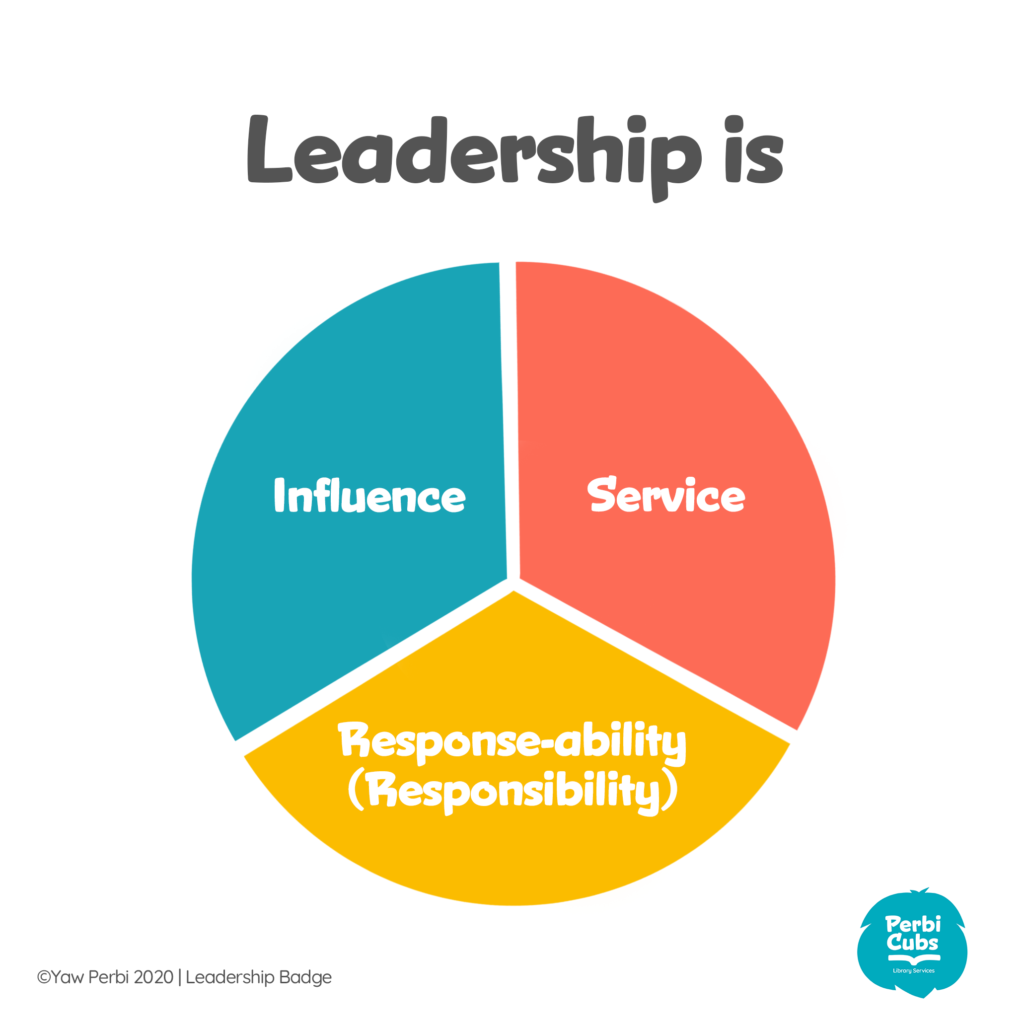
Leading From Life Story
Leadership is an interesting phenomenon. It is a more personal phenomenon than many people realize. I have been studying leadership for a while, at least for the last twenty-five plus years, and one of the greatest discoveries for me has been that leadership is not something ‘up there’ or ‘out there.’ The greatest leaders have been those who have been able to deeply reflect on their life stories and reframe them, leveraging their life stories to lead.
Growing up in Ghana as a student of leadership, a lot of the apt illustrations and gripping stories I consumed were foreign, mainly coming from Western literature and audiovisuals. A case in point is Howard Schultz, CEO of Starbucks, as one of the best examples of how the corporate success of Starbucks is as a result of the reframing of his own life story, especially his dad’s misfortunes. Says Mr. Schultz himself, “The reservoir of all my life experiences shaped me as a person and a leader.” Now, I am really excited that many more Africans are telling their leadership stories and writing, putting them in print. Finally, the lions are learning to write their own tales of the hunt.
MEET THE MECHANICAL ENGINEERING MBA
One of the CEOs in Ghana whose life story has taken a firm grip on me is a young lady I’ve just come to love. First, she’s just an amazing human being, very authentic. Then Akua is a professional in her own right, with a Masters in Mechanical Engineering, an MBA, a third seminarian masters and actually studying for a Ph.D as well. But the icing on the cake for me is this: she is a priest too!
The fascinating story of Rev. Akua Ofori-Boateng is chronicled in her thrilling autobiography aptly entitled ‘Broken For Use.’ It is raw, real, and very vulnerable—perhaps the most vulnerable Ghanaian, or maybe even African, autobiography that I have read.
Akua is CEO of Aequitas, an organization desirous to see every youth find and pursue their passion. She and her team do this by providing internships and safe learning spaces for youth to explore, discover their gifts and find their purpose. And when you have read her story—the intriguing tale of a privileged, middle-class girl yearning for approval—you will immediately understand why she would found and lead such an organization—from her life story!
WHY LEADING FROM LIFE STORY MATTERS
The passion and purpose of your leadership would come from your life story. If you are going to have dedication and commitment to leadership, it will need to come from leading from your life story. If you are going to have inspiration and motivation, it comes from your life story. If you are going to have a true north for your leadership, it comes from your life story.
I am exceedingly glad to be collaborating with her at YAW PERBI to impact youth and C-Level Executives because authentic leadership comes from leading from your story. Watch out for opportunities for collaborative training, coaching, workshops, publishing etc. with the Rev. when it comes to this whole area of authentic leadership. Just before wrapping up lunch with her the other day, I wanted her to share with you why she wrote this book and what it means for her life and leadership. You may watch the short, unrehearsed and upstaged video I captured here or read a transcript of her convincing spiel below:
Rev. Akua Ofori-Boateng: I wrote this book because when I was young and struggling with my own insecurities and challenges, I didn’t have any book like this to read, anything to tell me of that what I was going through was normal and that anybody had been through such. Certainly no one my age was talking about it from being that age. I wrote this so that young people who are struggling and unable to forgive themselves and have made some of the mistakes I made would recognize that we all make mistakes and that there is life after mistakes. The life after mistakes is a good life and a fulfilling one and a life that can benefit other people.
Dr. Yaw Perbi: How has your life story shaped your leadership?
Rev. Akua Ofori-Boateng: My life story and my leadership are inseparable. For me, I lead from a place of what I have experienced. And I want the young people to understand that you are not talking to perfection. You are talking to a person who is giving you advice based on their own issues, mistakes they have made and overcome so I lead from a place of authenticity. I got it wrong and now I’ve got it right; and if you got it wrong, you can get it right too.
CONCLUSION
Notable leadership experts from Bobby Clinton to Bill George have divided life into phases, usually three or four. It takes deep reflection to draw these out for oneself. The power of leading from life story is one of the many reasons why self-awareness is a sine qua non in leadership. There is no authentic or deep leadership without knowing one’s life story and reframing it as a source of inspiration, dedication and commitment, passion and purpose for your leadership. Your best leadership will not come from trying out a long list of characteristics of great leaders or even emulating outstanding ones, but from deeply reflecting on and leveraging your own life story. It will come from ‘in here’. The raw material needed for great leadership is found in your own life story. What a fascinating paradox that the outward journey of serving and influencing others first begins with a leader’s own journey inwards and backwards, drawing from the power of their own life story.

Leadership Is Not About You (And Not About Now)
Here I am 40,000 feet above sea level trying to piece together in readable form, a short video I shared last week on “Leadership is Not About You.” I’m en route back from an East Africa launch of my new co-authored book that took me to Nairobi (Kenya), Dar es Salaam (Tanzania) and Kigali (Rwanda), with a brief transit in Addis Ababa (Ethiopia). It’s been a while since I shot these PEP Talk videos because all roads have been leading to the launch of the movement and the said book, Africa to the Rest. The West Africa launch in Accra on March 31st had been so successful, buoying my team and me towards where the African sun rises for part two.
COMING HOME
Leadership is not about you, it’s about those you serve; it’s not about now, it’s about tomorrow. This truism landed in my heart as I touched down in Nairobi to a very warm welcome, ‘Karibu Kenya’ (welcome to Kenya). In Ghana we say, ‘Akwaaba.’ Ghana and Kenya have a diplomatic arrangement which allows citizens to visit each other’s countries without a visa. How wonderful. And this time also, the immigration officer did not ask me, “Why are you here, what’s the purpose of your visit?” Come to think of it, why would he? Who asks anybody, “Why are you coming home?” I’m home, Kenya is home.
That really is how the whole continent should look like yet traveling across Africa can be a nightmare. I am looking forward to the day when we do not need visas to travel across the second largest continent on the planet. I earnestly envisage the time when we’ll not have to change several currencies to travel across Africa. I am looking forward to the time when with one passport, one can fluidly go to all the 50 plus countries on the motherland. And that, my friend, will take tremendous leadership. How come I did not need a visa to Kenya, that all the way from Ghana, six hours flight away, I could just enter Kenya unhindered by red tape? Because at some point, once upon the time, a certain leader (or group of leaders) thought that was something great we could do for the mutual benefit of our peoples, for every Ghanaian and Kenyan.
As the driver was taking me from the Jomo Kenyatta International Airport (JKIA) to Severine Cottages in Karen (a suburb of Nairobi) where I was scheduled to lodge, courtesy of the owner Mary Ngechu, a YAW PERBI coaching client, we were having a conversation amidst a bit of road congestion from time to time. There had been some redirection of traffic in Nairobi because Kenya had just lost their third president, Mwai Kibaki, and this was preparation day for the funeral in the morrow. The next day was a holiday for his state burial, and several continental dignitaries were expected to arrive via the JKI airport. This driver was full of praise for the late head of state. “He was a good man, he built this highway we’re on, started free primary education for every Kenyan child…” he did this, he did that…. he was a good man. Far from perfect, it seemed from the narrative that Kibaki understood that his leadership was not about him, but about those he can been given influence to serve; and that his leadership wasn’t just about then (2002-2013), but about tomorrow.
NOT ABOUT YOU
Leadership is not about us; it’s not about you. It’s all about those we serve and influence towards some shared, noble purpose. I find it very sad when we have leaders, especially on our continent, who wants to loot all the wealth they can get, grab all they can eat and can the rest for tomorrow for their children and grandchildren. But leadership is about the people, for the people.
The year 2063 is when the leadership of Africa is hoping to have one passport and this free, unhindered movement of people. It’s too far! By 2063, I will be 85 years old, if the Lord wills and if He tarries. Come on, things have to be sooner, much sooner. I am excited about the crucial interventions of YAW PERBI Executive Education, BCA Leadership, Africa Leadership Initiative, The HuD Group and all others working on the continent to catalyze authentic, effectual leadership because everything does rise and fall on leadership. Leadership is indeed cause, everything else is effect, and l felt that right that morning when arrived in Kenya.
AFRICA CONSOLIDATING
I can confidently tell you that the dream of one Africa, one passport, no visas can happen. It took a certain Jean Monnet to get the European Union going in that direction (I remember that so vivildly from our Africa Leadership Initiative/Aspen Institute readings from over a decade ago). The ability to not only fly from the top of Tunisia to the tip of South Africa, or from the cusp of the Cape Verde peninsula to the extreme edge of Mauritius unfettered and unvisa-ed, but even drive across the length and breadth of the continent is a dream I share with many others on the continent and in the diaspora. Imagine no need to change several SIM cards, no need for consecutive currency exchanges and having eight different specimens of shillings in your breaking purse. This is the Africa we want; yea, even the Africa we need.
For sure, this will take visionary, effectual leadership. Remember, leadership is not about us, it is about those we lead and their aspirations, even that of those who would come tomorrow. Are you pepped up to lead and leave a lasting legacy? Leadership is not about you, it’s about those you serve and influence towards a shared, noble purpose. It’s not even about now; it’s about tomorrow. Let your leadership count years from now, thousands of years from now, even into eternity.

How to Eat an Elephant
“The world has entered an era of the most profound and challenging change in human history. Most of our children are not prepared, and we know it. Parents around the world see the change and know that the traditional three R’s–reading, writing, and arithmetic–are necessary; but not enough. Their children need to become far more responsible, creative, and tolerant of differences. They need to increase their ability to think for themselves, take initiative, get along with others, and solve problems. Business leaders are not finding people whose skills and character match the demands of today’s global economy, including strong communication, teamwork, analytical, technology, and organizational skills. They need young people who are self-motivated, creative, and have a strong work ethic. How will we bridge this ever-widening gap?” (Leader in Me blurb)
In my previous blog, I highlighted the current global leadership crisis epitomized by the likes of U.S. president Donald Trump. Yet even over a decade ago, leadership gurus like Stephen R. Covey (of The 7 Habits of Highly Effective People fame) uttered the above words, speaking of an era of challenge our children are unprepared for. The present leadership crisis has been brewing for a long time. If we do nothing about it, we’ll be setting our world back generations, and for generations to come. So how in the world are we going about it, growing leaders from childhood? I’m glad you asked.
THE ROLE OF LIT
Perbi Cubs Library Service through their book collection, activities and Lions Inspire Cubs programs inspire and empower children to be ready for leadership and impact. The Lions Inspire Cubs program has featured Lions (Leaders making impact in society) like Dr. Ahitey Trebi-Ollenu, a Robotics engineer at NASA.
The final element of this attempt at raising young, holistic leaders is the newly-launched Lions in Training (LIT) track which results in medallion awards for Cubs. As a firm, YAW PERBI is working with Perbi Cubs from the grassroots with children at home and in school. We consult for Perbi Cubs, providing the theoretical basis and praxiological framework, breaking down high level leadership concepts into small bits to deliver leadership development to 7-14 year-olds. After all as huge as it is, even an elephant can be eat. But how do you eat an elephant? Bit by bit.
ROLE OF PARENTS IN LIT
I have often said that, “Charity begins at home, so does leadership.” Parents are not only the primary caregivers of children but their primary leadership coaches as well. Of a truth, “the hand that rocks the cradle rules the world.” So together with parents, every quarter we focus on three core areas that when gotten right will have a significant change/impact in the lives and leadership of these Cubs. Every Thursday, parents receive an email to evaluate how the child did that week as leader. These three core areas of evaluation focus on various everyday practical actions and inactions of the Cubs at home and in school.
LEADERSHIP BADGE
So after digesting tonnes of leadership articles and books and studying global leadership even at the graduate level, I have come to the conclusion that although there are over 360 documented definitions of leadership, leadership is basically responsibility, service and influence. The easiest way for a child to understand a ‘big word’ like responsiblity is response-ability.
This diagram (above) may seem simple but it is one of those things referred to as simplicity at the far end of complexity. It looks deceptively simple but has come through after a lot of complex thinking processes.
ON YOUR MARKS…
So for this quarter, this is how the children are being observed, encouraged and evaluated as Leaders in Training (LIT) in practical terms:
A. Responsibility is response-ability:
- Cub chooses to do the right thing without prompting.
- Cub is able to take charge of getting their school work done.
- Cub does not blame others for their circumstances.
B. Service is being of use to others:
- Cub is helpful at home and school.
- Cub willingly does their chores.
- Cub does not boss other people around.
- Cub uses their talents/gifts to help others or make their lives better.
C. Influence is producing effects on others:
- Cub exerts positive peer pressure.
- Cub affects the actions, behavior or opinions of siblings and friends in a good way.
- Cub sounds convincing in expressing their opinion.
CUBS CAN EAT ELEPHANTS
“So how do you eat an elephant?” my father would ask our little selves when we were just waist-high and get us head-scratching. If such a complex phenomenon like photosynthesis can be taught at the PhD level but also broken down so simply and taught at nursery (pun intended), then leadership can too. So even lion cubs can eat elephants. How? Little by little, bit by bit, one bite at a time.




